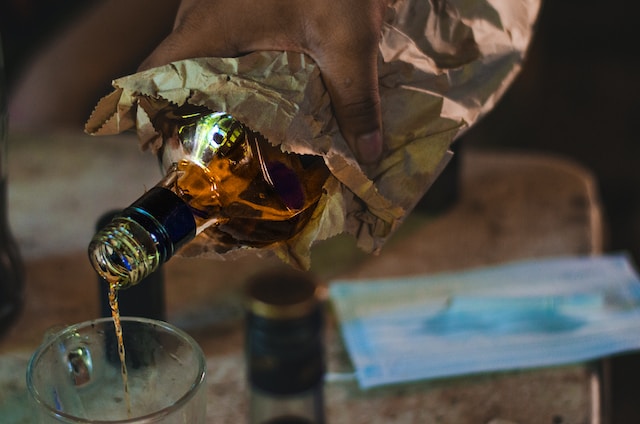[ad_1]
Drink spiking is more prevalent than you think, according to the TEARS Foundation, which offers a free, national, survivor-centred service for survivors of rape and sexual abuse.

Mara Glennie, Founder and CEO of the TEARS Foundation, says, “The sad reality is that drink spiking and rape, sexual assault, abuse and violence go hand in hand – if you suspect you’ve been physically or sexually assaulted it’s important to tell someone you trust.”
Seugnette van Wyngaard, Head of 1st for Women, who’s anti-abuse Foundation works closely with TEARS, urges women to remain vigilant. “When someone is unknowingly drugged, they may feel dizzy, nauseous, sleepy, confused, have blurred vision, slurred speech and have trouble with basic motor skills. If you suspect that your drink has been spiked, seek medical attention immediately. If you suspect that someone drugged and assaulted you, have someone you trust to take you to the emergency room. Tell the medical team what happened and ask for a urine test as soon as possible so they can look for drugs before your body flushes them out.”
Peach Piche, Founder of Drinkerbell, an organisation that has specifically designed an innovative product to combat drink spiking says that in South Africa, victims have ranged from a 14 year-old to a 70 year old woman. It’s happening at house parties, corporate events, restaurants, festivals, pubs and clubs.
While there are no official statistics for drink spiking in South Africa, in Australia, reports of drink spiking have increased by almost 50% compared to pre-pandemic numbers and in the UK, one in nine women have said they’ve been victim of drink spiking.
“Drink spiking is a crime and statistics need to be recorded in order to raise awareness and catch the perpetrators as they rob the victims of having a choice, and subsequently assault them. It has to stop,” says Piche, who created the Drinkerbell product after her daughter was targeted and nearly lost her life.
She continues: “It is also not only an alcohol related problem as water and soft drinks are spiked too with Rohypnol and a cocktail of other drugs. The typical modus operandi used by drink spikers is to distract their victims and then add drops, tablets or powder to their drinks. This leaves them at the mercy of criminals who will pounce on them in plain sight, or pretend to be a friend, loved one or good Samaritan escorting them to a “place of safety”.
To help keep the women of South Africa safe, 1st for Women, TEARS and Drinkerbell offer the following advice:
- Safety in numbers: Always go out in pairs or a group, never lose sight of each other and if someone in the group is behaving out of character, rather call it a night and leave, together.
- Stranger danger: Never accept a drink from a stranger or leave your drink unattended, unwatched or uncovered. An open or unmonitored glass makes you vulnerable and easy prey. If someone buys you a drink – even someone you know well – make sure that you watch it being poured.
- Protect your drink: Using a tool like Drinkerbell and asking a trusted friend to watch your drink when you’re away could very well save your life.
- Taste test: It’s often hard to tell whether your drink has been spiked, but if it tastes different from what you’re used to – sweeter than normal or fizzier, for example – don’t drink it. Be especially wary of someone who encourages you to finish your drink quickly.
- Wingwoman: Keep an eye out for your friends and guard them against strangers. Look after their drinks and watch them for any changes in behaviour. If you suspect that someone, even someone you don’t know, is being targeted, step in to help them or alert security or the manager of the establishment.
“The biggest mistake you can make is thinking ‘it can’t happen to me’. It may if you’re not vigilant. Drink spiking is shockingly easy to do as one social experiment recently illustrated,” van Wyngaard concludes.
For assistance, 24/7, 365 days a year, contact TEARS who prioritises both access and privacy for victims and survivors of sexual assulant and GBV.
- Dial *134*7355#, and or emergency press 2 and follow the prompts. A first responder will contact you. This service is free, 24/7.
- Helpline: 010 590 5920 (Standard rates apply)
Follow us on social media for more travel news, inspiration, and guides. You can also tag us to be featured.
TikTok | Instagram | Facebook | Twitter
ALSO READ: Paraglider rescued from tree by Hermanus High School learners
[ad_2]
Source link
Jarastyle – #Drink #spiking #rife
Courtesy : https://www.getaway.co.za/brand-feature/drink-spiking-is-rife-in-sa/

